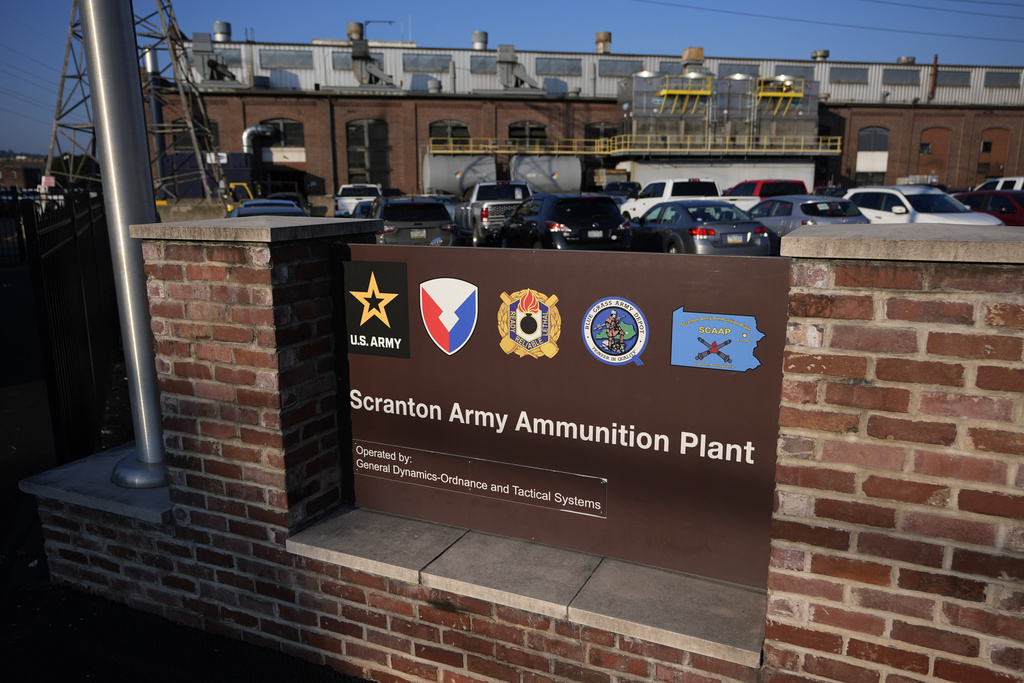A Pennsylvania ammunition plant that makes a key artillery shell in Ukraine’s fight against Russia has managed to boost production by 50% to meet surging demand, with more capacity set to come on line.
Government officials revealed the increase in production this week as they showcased the historic factory’s ongoing, $400 million modernization.
The Scranton Army Ammunition Plant cuts and forges 2,000-pound (907-kilogram) bars of steel into 155 mm howitzer rounds that are then shipped to Iowa to be packed with explosives and fitted with fuses. From there, many of them make their way to the fight in Ukraine, where they are highly sought.
The Scranton plant, along with two other ammunition plants in nearby Wilkes-Barre, recently increased production from 24,000 rounds per month to 36,000 rounds per month. Three new production lines are under development that will allow the Scranton facility to churn out even more of the critical munitions, the factory’s top official said.
“Right now we’re concentrating on 155. That’s pretty much all we’re concentrating on,” Richard Hansen, the Army commander’s representative at the plant, said Tuesday while giving news outlets a tour of the sprawling factory grounds near downtown Scranton. “We’re working really hard to ensure that we achieve the goal that the Pentagon has established.”
The U.S. has sent more than 3 million 155 mm artillery rounds to Ukraine since Russia invaded the country in 2022, according to government figures. Earlier this month, the White House announced another $125 million in weapons to assist Ukraine in its military operations against Russia, including 155 mm shells.
The Scranton factory began life as a locomotive repair shop at the beginning of the 20th century before the Army bought it and converted it into a production facility for large-caliber artillery for the Korean War. It’s been operated by General Dynamics since 2006 under contract with the U.S. government, which owns the plant.
Officials are about halfway through one of the biggest modernization projects in plant history, with about 20 projects underway. Tuesday’s tour included a new production line with a sleek new machine that will do the job of three, helping maximize use of space at the 500,000-square-foot (46,452-square-meter) factory.
The plant employs about 300 people, according to a General Dynamics spokesperson. Some of them have been there for decades running the equipment that cuts the steel, heats it to 2,000 degrees Fahrenheit (1,093 degrees Celsius), and forges, machines, washes and paints the finished shells. Each round is manually inspected at each step to ensure it meets specifications.
“We want it go where we point it,” Hansen said. “We want it to go as far as we need it to go to do its job. Lives depend on it — the lives of the gun crew, the lives of innocent civilians depend on this round doing exactly what we want it to do out in the field.”
(AP)











